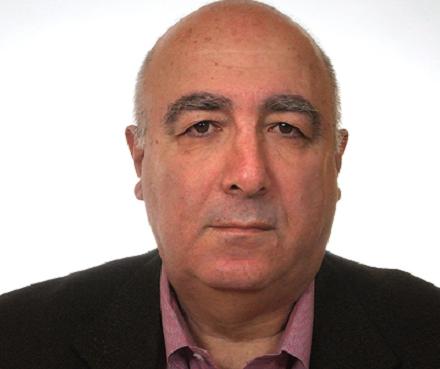
Tedo Japaridze is former Georgian foreign minister, currently political advisor to Bidzina Ivanishvili.
A Letter from Washington DC
by Tedo Japaridze, former Georgian foreign minister, political advisor to Bidzina IvanishviliI shall wrap up my blitz visit to Washington DC by tomorrow, a place where I spent more than 8 years as Georgia’s Ambassador to the United States of America from 1994 through 2002. I studied and worked in this country as a scholar and expert for more than 38 years. This is a country that helped Georgia so much to survive in its first years of independence and then to become a relevant, capable, functioning state in the Caucasus, one of the most dynamic and at the same time vibrant parts of our globalized world. As in previous years, my visit to the United States was about Georgia and its future although for this time I do not represent the Government which I did throughout my entire professional career, but rather the opposition – Coalition of “Georgian Dream” and its leader Bidzina Ivanishvili, a new and powerful equation on Georgia’s political landscape, an undisputable and the most coherent alternative to the current president and his Government that will run for the upcoming Parliamentary elections scheduled on October 1, 2012.
So the electoral cycle of a global power is as inflexible as any. But, Washington is a global capital. Over the next few months, powerful lobbies will be flexing their muscles while other leaders that would prefer to go unnoticed and will keep a low profile in the hope that no major decision takes place in the middle of a campaign. We might pretend that global governance is unaffected but we all know this is not true. In sum, as the world craves for firm leadership, we must wait and see.
Some hold their breath more than others. As I said above, we’ll have in Georgia the legislative elections by October 1 2012, Presidential elections in February 2013. However, in this country everything is “flexible” – institutions, the electoral law, freedom of speech, even the Constitution – and a number of things can go wrong while neither Brussels nor Washington are looking.
Indeed, there are reasons to believe that Washington is not looking. In a recent article (the “Financial Times”, 07/27), former Secretary of State Condi Rice has urged the USA to reassert its resolve in global governance. The “US must recall it is not just any country” was both the title and the bottom line of her message. America must lead: confronting Russia and Latin American dictators, arming the Syrian opposition and reengaging in Iraq. Curiously enough, the word “Caucasus” does not come up in this review of the US Foreign Policy, or the word “Georgia” for that matter.
And this is curious since most of the concerns expressed by the former Foreign Secretary come together in this part of the world: for Moscow, this is the “Near Abroad,” were the affirmation of a geopolitical veto is critical; for Washington, this is a region bordering both Iran, Turkey and Russia, where a lot of diplomatic capital has been invested in order to harness alliances and promote democracy; for Brussels, this a region where Europe must invest in order to hedge the risk of singular exposure to Russia’s energy supply. And the West has toiled for decades to make this region less welcoming to jihadist groups as well as traffickers in arms, nuclear material, women and small arms.
And surely Secretery Rice understands better than anyone else in Washington all these sensitivities, both due to her academic training and because of experience. Nonetheless, Georgia is off the radar. Even as an economic crisis is unfolding in Europe and Washington is geared towards elections, the West should be monitoring developments in the region – especially in Georgia – for two reasons. So why should these upcoming Parliamentary elections matter to the West and specifically the United States?
First, there is a matter of principle. Europe as well as successive US Administrations has sponsored democratization in the region, lending their support to a number of “color revolutions,” including the Georgian Revolution of the Roses. In fact, a number of people have since 2004 invested Georgia with the aura of a “model-democracy” with Michael Saakasvilli reaping the benefits of such a positive endorsement. The current Secretary of State Clinton and Senator McCain even nominated him for the Nobel Peace Prize in 2005. Now, everybody must take a step back and see whether they have invested on the wrong man.
Since 2004, Freedom House indicators do not look promising; human rights reports vary from “critical” to “condemning;” freedom of speech is constantly violated; a level-playing field in the electoral process has not been secured. And the question for thousands of Georgians is whether democracy is a regime where the President can call the former head of the security services (and recently appointed Prime Minister), Vano Merabishvili, the backbone of Georgian democracy; whether democracy is the regime where the constitution can be amended at whim; whether democracy is the regime where winner takes all and the law can serve power rather than the opposite. And the time to make a stand is now, prior to the October 2012 legislative elections.
The good news is that the Georgian people are increasingly demanding change. A unified opposition has formed under businessman Bidzina Ivanishvili to challenge one-party rule in the October Parliamentary elections. The Georgian Dream Coalition has shed old rivalries in favour of civil society, modernization, and Western orientation. And Georgian democracy now has a chance if only the world does not remain idle.
Secondly, the West should be cautious to whom it bestows its trust. The incumbent President of Georgia has used anti-Russian rhetoric to sustain a career based on empty threats, or making promises the West must deliver. Falling into the trap set up by Russia in 2008, President Saakasvilli entered a war counting – if not demanding – that NATO and the US should follow. The West was not ready to go to war over Georgia. And we all know what happened next. But, the question is whether any lessons were learned since 2008.
Since 2008 nothing has changed for thousands of refugees. The Georgia economy stagnates and unemployment levels exceed 30%. Nonetheless, for President Saakasvilli everything is still “business as usual.” He speaks of Georgia as the “New Berlin Wall”, the “New Mannerheim Line”, or a “Western Cuba”. This way he expects to carve out a friendly constituency in the West. And, at times, it works. The bottom line is this: should Saakasvilli renew his grip on power, despite the people, the next US President may be driven into a confrontational trajectory with Moscow, having little choice on the matter. And this is a threat Mrs. Rice should feel rather familiar with and a prospect Mrs. Clinton should not welcome.
President Saakasvilli is about to “do a Putin” in the name of the West, either replacing himself with a fake successor or by taking a different post, conveniently changing once again the constitution. How this is possible, one can take their pick from Russia to Venezuela to find out. And one thing is certain: silence in the Washington and Brussels builds audacity in Tbilisi. Recently, Saakasvilli has been reaching out diplomatically to Teheran and established a visa-free regime with that country, while being vitriolic on Moscow.
Still, no reaction has come from the West. What works for Michael Saakasvilli is that his face is familiar. He is a smooth, if increasingly erratic and authoritarian, international personality. He comes from a family of doctors, studied at Columbia University and has many fans in the West. His main opponent on the other hand, Bidzina Ivanishvili, comes from a family of peasant farmers. He is a successful businessman and philanthropist, but is little known outside of his own country. Therefore, eclectic monitoring is perhaps to be expected.
And the deck, according the Western experts, is further stacked against Bidzina Ivanishvili. He is not only unknown, but he has not mixed in the clubs of the Western security establishment for decades as his opponent has. Instead, he believes strongly that after 20 years of failed international diplomacy, a strong civil society which arises from within Georgia’s rich mixture of cultures is the best bulwark against totalitarianism. Instead of mimicking Putin’s and Saakasvilli’s confrontational approach, Bidzina Ivanishvili is drawing on examples from the Dayton Agreement, from South Africa, the dialogue between Poland and Russia and above all the European Union itself as models for long term resolution of deep seated historic enmities. But, no one is listening to new voices at this point in time. In the middle of a campaign and an unprecedented economic crisis, no one wants changes.
This is disappointing fact for a number of people in Georgia. As we speak, tens of thousands of Georgians are braving Government thugs to show their support for democratic change. According to recent polls, there is a real chance for an opposition victory, in a fair election. As the “Georgian Dream” movement gained influence, many hoped that the West would adopt them as champions of democracy as they did for Solidarnosz in Poland thirty years ago. This hope has not materialized.
The West is not tuned in. Western leaders have been silent as Georgian government repression undermines chances for free elections in October. Maybe they are worried that we cannot stand up to Russian pressure; perhaps, there is a feeling that “there will always be another chance.” But whatever their concerns, they are watching as the current government steals the process of the elections before they have even taken place. With stakes this high, the beginnings of Georgian democracy are in danger of being sacrificed in a proxy battle between East and West that is only imaginary. The truth is “the West” is held hostage to Saakasvilli’s thirst for power in a manner that may prove costly.
Rather than having a “regional partner,” the next US President or any European leader may find himself with a regional liability. Incidentally, the Georgian people would feel betrayed as well. In sum, there are certain issues requiring Washington’s immediate attention; and Brussels too. 2013 may just be too late.
Washington DC, August 6, 2012
Tedo Djapharidze
Former Georgian Ambassador to United States
Former Minister of Foreign Affairs of Georgia
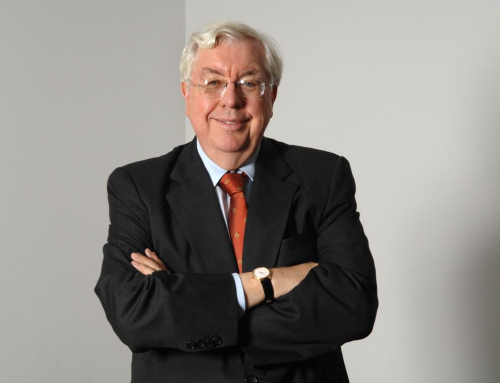

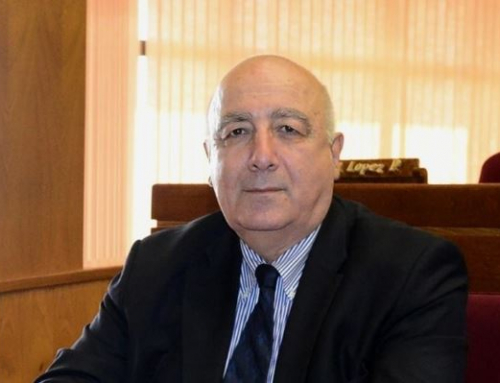
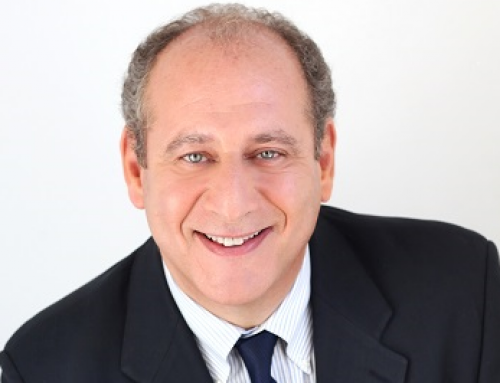
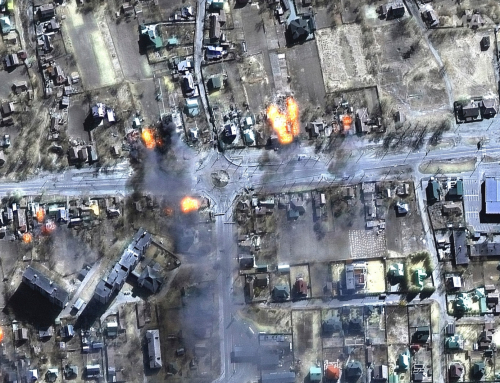
Leave A Comment
You must be logged in to post a comment.